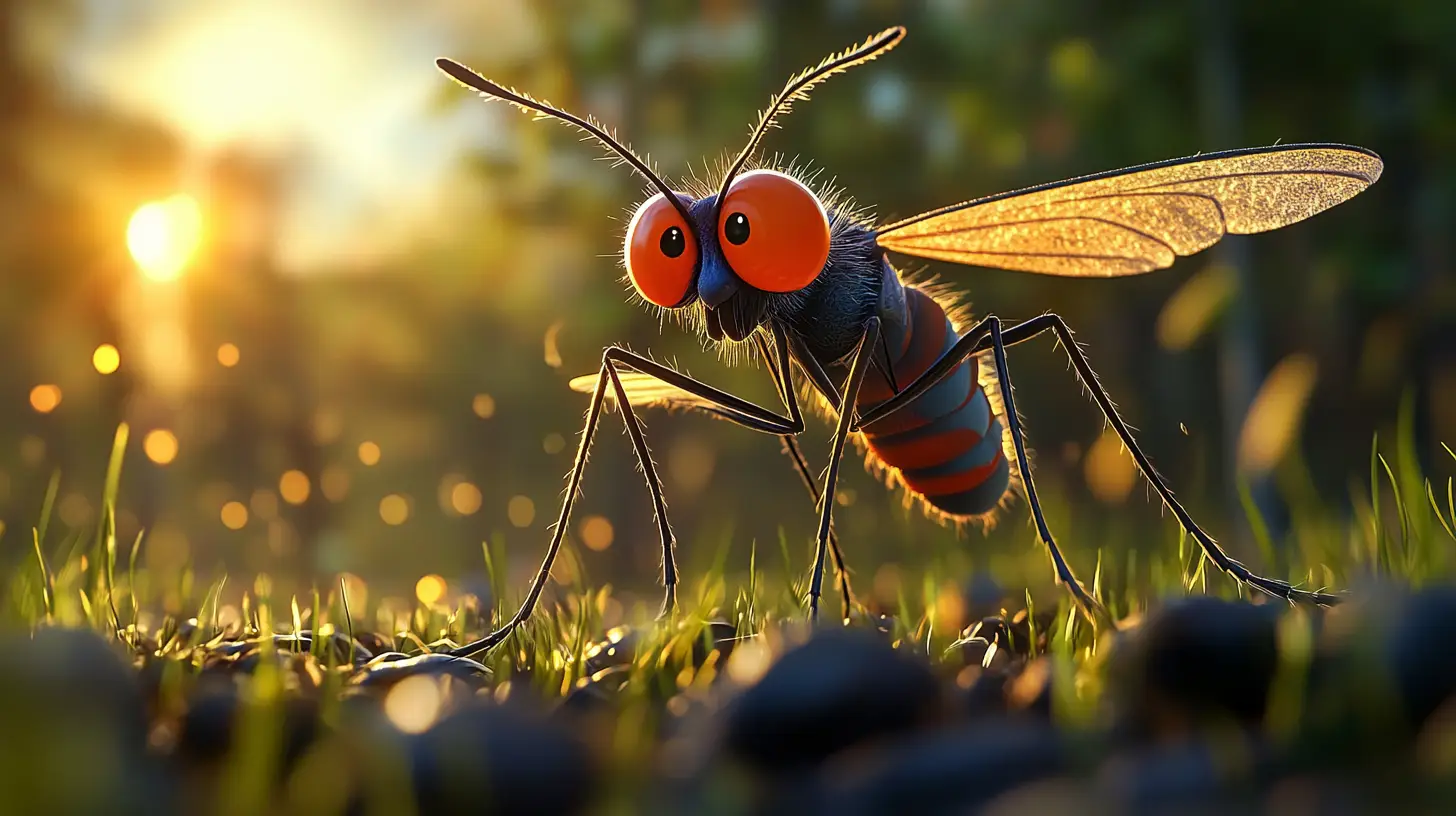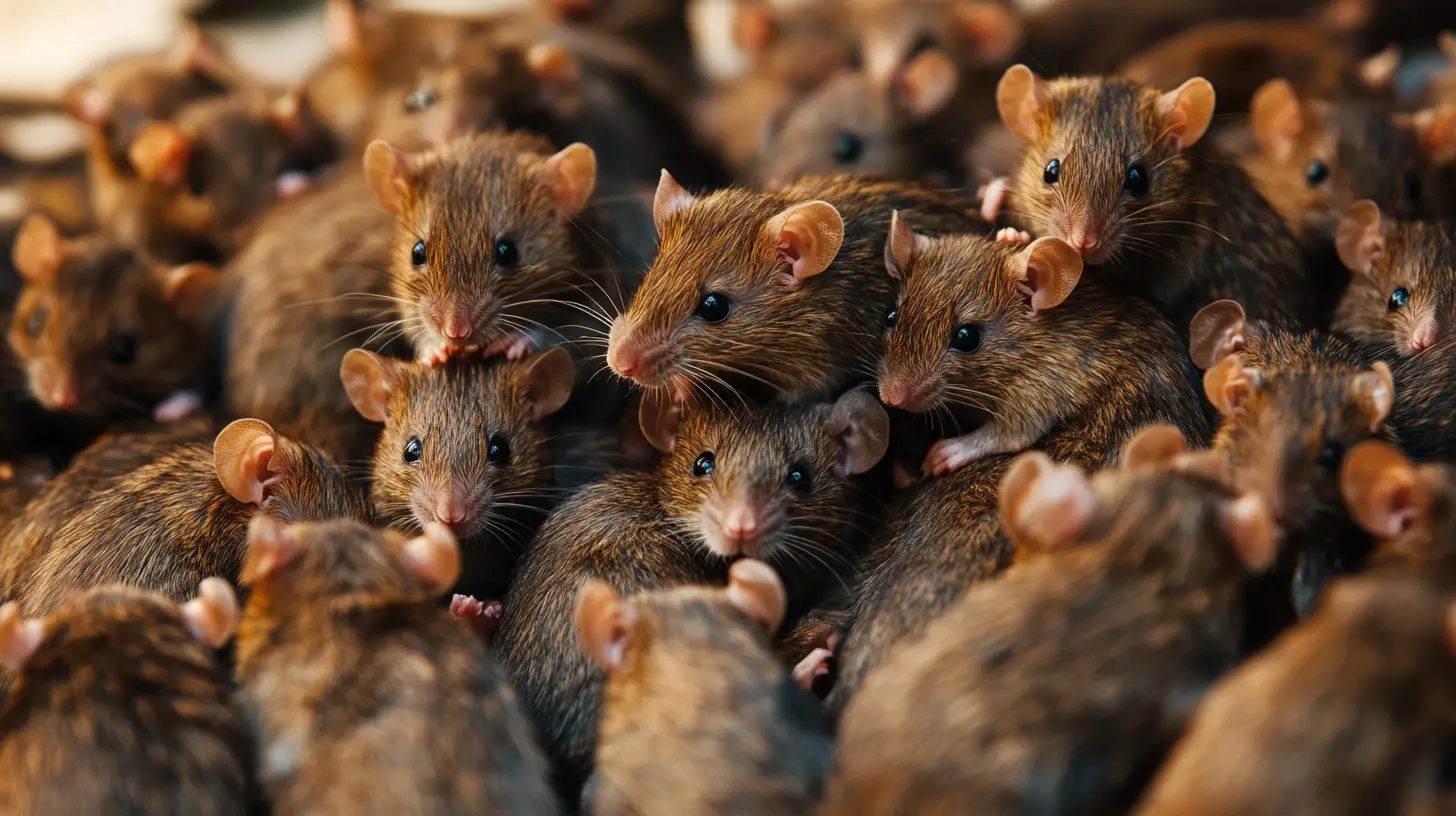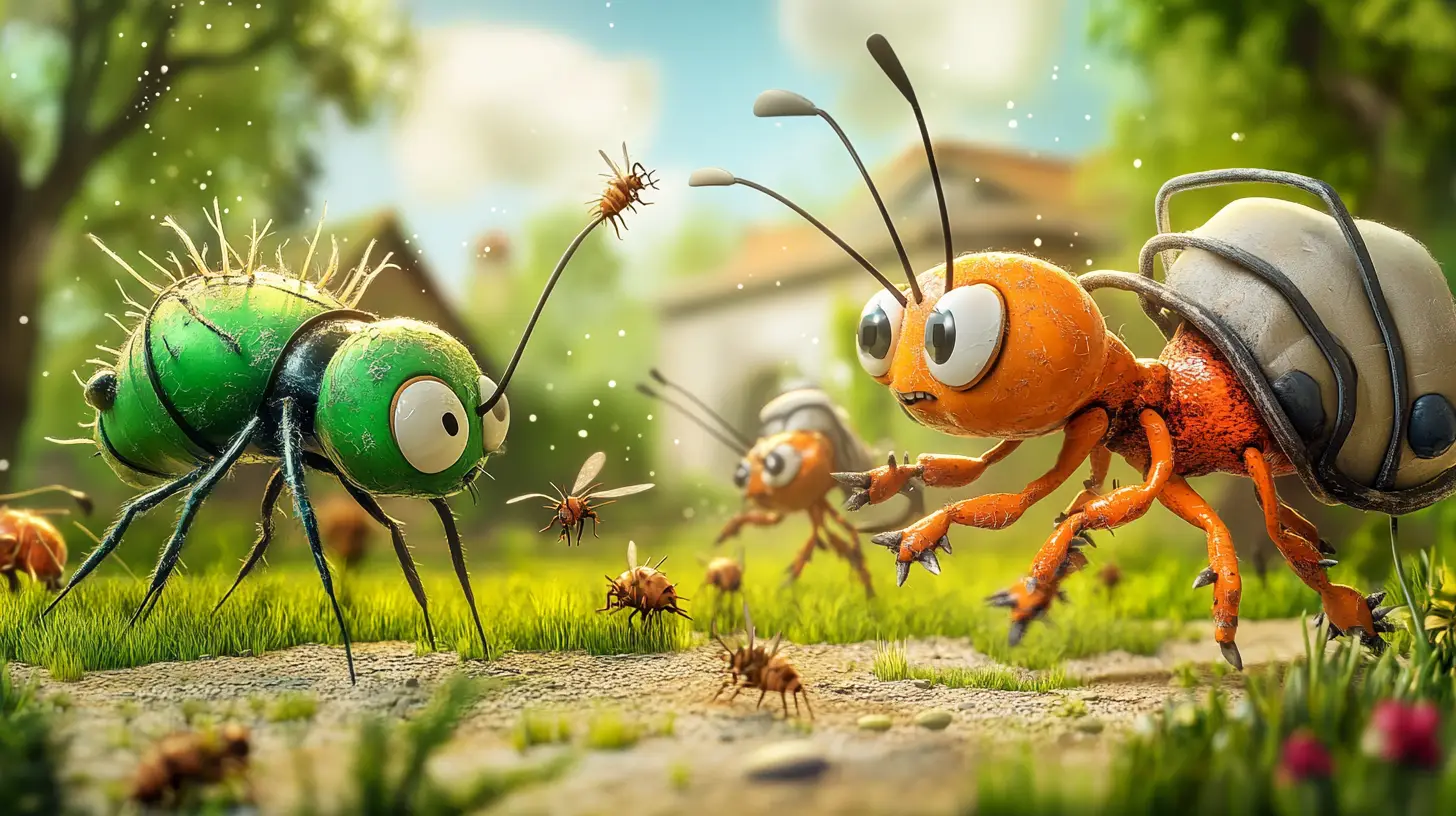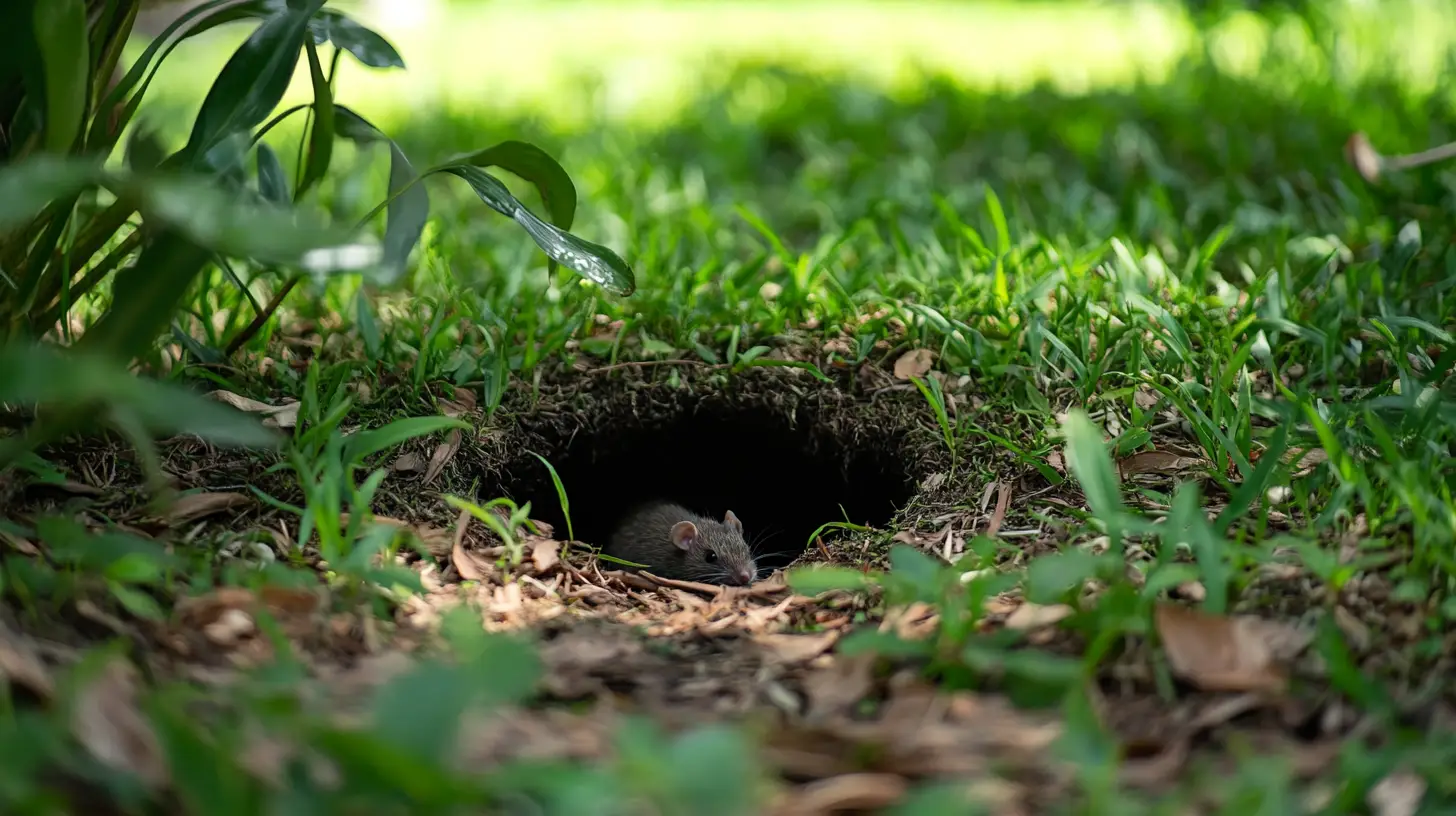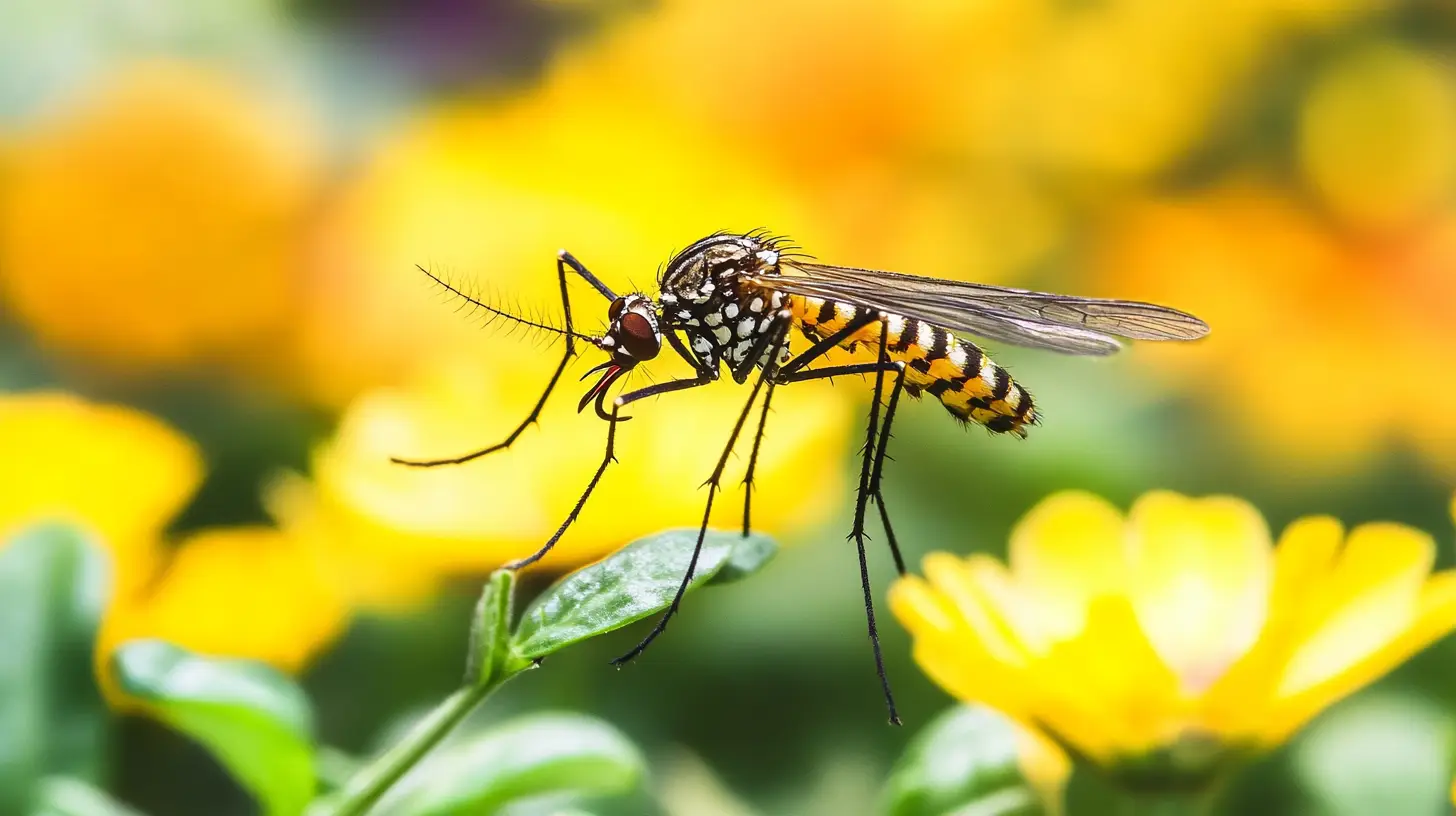
Table of Contents
When it comes to protecting your home from pests, one of the first concerns for pet owners is finding out what pest control is safe for pets. In Lakewood Ranch, where warm weather can invite an array of pests, it’s essential to ensure that the methods you use won’t harm your furry friends. Many common insecticides and pest control products contain chemicals that can be toxic to pets. Understanding how these substances work, the risks involved, and how to choose safer alternatives can help you keep your home pest-free while ensuring your pets stay healthy.
In this blog, we’ll explore safe pest control practices around pets and offer expert insights on alternatives that are both effective and safe for your beloved animals. Whether you’re considering DIY pest solutions or seeking professional help, knowing how to manage pests without compromising your pets’ health is key to maintaining a safe, comfortable home in Lakewood Ranch.
Key Takeaways
- Pet-Safe Solutions: Opt for pest control methods that prioritize the safety of pets, such as natural repellents, essential oils, and low-toxicity products.
- EPA Classifications: The EPA distinguishes between exempt (low-risk) and non-exempt (registered) pest control products. Exempt products are often safer for pets and the environment.
- Common Toxins: Some common insecticides, like carbamates, pyrethrins, and d-limonene, pose serious health risks to pets, including nervous system overstimulation and liver damage.
- Exposure Risks: Pets can be exposed to harmful chemicals by licking treated surfaces, ingesting poisoned pests, or coming into contact with flea and tick treatments.
- Prevention Strategies: Prevent pet exposure by removing pets from treated areas, using enclosed bait stations, and allowing products to dry before letting pets re-enter the space.
- Natural Pest Control: Use natural alternatives like essential oil sprays, diatomaceous earth, and pet-safe plants to repel pests while keeping your home safe for pets.
- Professional Help: Waves Pest Control offers eco-friendly, pet-safe pest control solutions, using careful scheduling, targeted treatments, and expert guidance to keep your pets safe.
How the EPA Classifies and Regulates Pest Control Solutions
The EPA classifies pest control products into two categories: exempt and non-exempt products under the Federal Insecticide, Fungicide, and Rodenticide Act (FIFRA). This distinction ensures that products used for pest control are regulated based on their potential risk to human health, pets, and the environment.
Exempt Products
Minimum Risk Pesticides are considered low-risk by the EPA and are exempt from FIFRA registration requirements. These products must meet strict guidelines outlined in 40 CFR 152.25(f), which ensure that both active and inert ingredients are safe for use. Active ingredients in these products often include natural substances like essential oils, while inert ingredients must be items commonly considered safe, such as food commodities, animal feed, or edible oils. Because these products pose minimal risk, they do not undergo the same extensive regulatory review as other pesticides.
Additionally, the Consumer Product Exemption allows certain pest control products that are available for general public use and packaged in non-hazardous forms to be exempt from specific hazardous chemical classifications under the Emergency Planning and Community Right-to-Know Act (EPCRA).
Non-Exempt Products
In contrast, Registered Pesticides are those that do not qualify for exemption and must undergo a rigorous EPA review. These products, commonly used in agriculture, homes, and commercial settings, are subject to evaluations that assess their environmental impact and safety for humans and pets. The EPA looks at active ingredients, the potential risks of exposure, and the effectiveness of these products in controlling target pests. Additionally, the EPA is required to review each registered pesticide at least once every 15 years to ensure ongoing safety and compliance.
State-specific regulations also play a role in pest control product use. For example, while some products may be exempt at the federal level, states like Florida have their own registration requirements for certain pesticides.
Regulatory Timeline
The EPA’s regulation of pest control products has evolved over time, starting with the establishment of the agency in 1970. Notably, the cancellation of DDT in 1972 marked a significant shift in the EPA’s approach to pesticides, followed by a series of bans and restrictions on hazardous chemicals like heptachlor, chlordane, and EDB. By 2007, FIFRA was amended to require the EPA to review registered pesticides regularly, with the deadline for completing the review process of older pesticides extended to 2026.
In summary, the distinction between exempt and non-exempt products ensures that pest control solutions meet safety standards, whether they are considered low-risk or require more stringent regulation. This system allows homeowners and businesses to choose products that are effective while minimizing risk to people, pets, and the environment.
Pest Control Solutions to Avoid for Pet Safety
When managing pests around your home in Lakewood Ranch, it’s essential to consider the safety of your pets when using pest control products, especially in DIY situations. Many common pesticides and chemicals can pose serious risks to animals if not used properly.
Pets getting sick from pest control insecticides is a serious concern for many pet owners. According to the ASPCA Animal Poison Control Center, insecticide poisoning and the use of rodenticides consistently ranks among the top 10 common toxicities for pets. Many common pest control insecticides can be toxic to animals, especially dogs and cats.
Some of the most dangerous chemicals include carbamate insecticides, which overstimulate the nervous system, d-limonene, which can cause liver damage or failure, and methoxychlor, known for causing tremors, convulsions, and seizures. Additionally, pyrethrins and pyrethroids are particularly harmful to cats and fish, as these species are highly sensitive to these compounds.
Even fertilizers with iron can trigger iron poisoning, causing systemic effects in animals. To protect your furry companions, always check product labels for potential pet risks, avoid using harmful substances in areas your pets frequent, and opt for pet-friendly alternatives such as essential oil-based repellents or diatomaceous earth.
Pets can be exposed to these toxic chemicals in several ways. Direct exposure through flea and tick products, licking treated surfaces, ingesting rodent bait or poisoned rodents, and chewing on stored pesticide products are all common routes of exposure. Symptoms of pesticide poisoning in pets can include vomiting, diarrhea, excessive drooling, rapid breathing, confusion, tremors, or even seizures. In severe cases, exposure may result in skin irritations, collapse, coma, or even death.
Although modern pesticides are generally considered safer than those used in the past, they can still be harmful to pets. Pets can ingest, absorb through their skin, or inhale these chemicals. Even products designed for pets, such as flea and tick treatments, can pose a risk if not used properly, particularly if a product intended for one species is used on another (such as using a dog treatment on a cat).
Given these risks, it’s crucial for pet owners to be vigilant when using pest control products. Always follow product instructions carefully and consult professionals for advice. Many pest control companies now offer pet-friendly solutions to minimize the risks to your furry friends. By staying informed and cautious, you can keep your pets safe while managing pests in your home, especially in areas like Lakewood Ranch where pest control is a year-round need.
What Pest Control Is Safe for Pets in Lakewood Ranch?
When it comes to pest control in Lakewood Ranch, ensuring the safety of your pets is a top priority. Many common insecticides can be toxic to dogs, cats, and other animals.
Chemicals like carbamate insecticides, D-limonene, and pyrethrins, though effective at pest control, pose significant risks to pets, leading to issues such as nervous system overstimulation, liver damage, and seizures. Pets can be exposed through direct contact with treated surfaces, ingestion of poisoned rodents, or even licking areas that have been sprayed.
To keep your pets safe, always consult your veterinarian before using any pest control products. Make sure to follow instructions on labels carefully, remove pets from areas being treated, and opt for enclosed bait stations when necessary. Natural pest control alternatives, such as essential oil sprays and pet-safe plants, can also be effective and safer for households with animals.
By staying informed and opting for pet-friendly solutions, you can manage pest problems while protecting your furry family members. If in doubt, reach out to a professional pest control service that offers pet-safe treatments to ensure a healthy, pest-free environment.
Natural Pest Control Solutions to Use for Pet Safety
Looking for natural, pet-safe pest control options in Lakewood Ranch? Whether you’re dealing with ants, fleas, or other household pests, there are plenty of ways to keep your home pest-free while keeping your pets safe. Essential oils like lavender and cedarwood make excellent natural repellents, while plants such as rosemary and peppermint add beauty to your home and help deter insects.
Simple DIY solutions, such as a vinegar spray or a baking soda and sugar mix for ants, can be effective and eco-friendly. For those who prefer commercial products, choosing low-risk options labeled as “pet-safe” ensures your furry friends are protected. Always follow product instructions carefully, and for severe infestations, consult a professional who specializes in pet-safe treatments.
Pet-Safe Pest Control Solutions for Your Home in Lakewood Ranch
When it comes to pest control, keeping your pets and family safe is a top priority, especially in Lakewood Ranch where eco-friendly and pet-safe solutions are in high demand.
At Waves Pest Control, we specialize in providing effective pest management services that protect your home without compromising the safety of your pets and kids. We use EPA-registered pesticides that are labeled as pet-safe and, whenever possible, opt for natural or organic products. By carefully selecting active ingredients with low toxicity to mammals, we ensure that your home is pest-free and safe for your loved ones.
To further minimize risk, we use baits and traps that are placed in areas inaccessible to pets, and we strategically schedule treatments when pets can be removed from the space. We also make sure to allow sufficient time for products to dry before pets are allowed back inside, offering flexible scheduling options like after-hours or weekend services to accommodate your busy life.
Waves Pest Control believes in clear communication with pet owners. We provide detailed information about the products we use, offering guidance on how long to keep pets away from treated areas and addressing any specific health concerns. You’ll receive written instructions for post-treatment care, so you know exactly what steps to take to keep your pets safe.
We focus on preventative and targeted approaches, such as exclusion methods to prevent pests from entering your home in the first place, and we use targeted spot treatments to avoid broad-spectrum applications. By implementing Integrated Pest Management (IPM) strategies, we reduce reliance on chemicals while maintaining effective pest control.
Our pet-friendly product lineup includes essential oil-based repellents, plant-derived insecticides like pyrethrin and neem oil, and diatomaceous earth, a natural, non-toxic powder applied in targeted areas. Additionally, we use low-concentration applications for safe, yet effective treatment and focus on treating the exterior of homes to create a barrier against pests.
Our technicians undergo specialized training in pet-safe application techniques and are well-versed in recognizing signs of pet distress or potential exposure. They stay updated on the latest pet-friendly products and methods to ensure we are offering the safest and most effective solutions.
At Waves Pest Control, we offer free inspections to assess your specific pest issues and any pet-related concerns. Our customized treatment plans are tailored to your home and the pets you have, ensuring peace of mind and comprehensive pest control. Open communication is key, so we encourage pet owners to ask questions and voice any concerns they may have. With follow-up consultations and continued support, we make sure your home remains safe and pest-free for everyone, including your furry friends.
By choosing Waves Pest Control, you can rest easy knowing we are committed to keeping your pets and family safe while effectively handling your pest problems.
Frequently Asked Questions (FAQs)
What pest control solutions are safe for pets in Lakewood Ranch?
Waves Pest Control offers pet-safe solutions that include the use of EPA-registered pesticides labeled as safe for pets. Whenever possible, we use natural or organic products with low toxicity to mammals. We focus on treatments that are not harmful to pets, such as essential oil-based repellents and natural substances like diatomaceous earth.
How do I know if a pest control product is safe for my pets?
Always check for products that are labeled as pet-safe or minimum-risk pesticides. These are specifically formulated to minimize harm to pets while effectively managing pests. Additionally, consult with your pest control provider, like Waves Pest Control, which specializes in using pet-friendly products.
What natural pest control methods can I use around pets?
Several natural pest control methods are safe for pets, including using essential oils like peppermint, cedarwood, or lavender as repellents. You can also incorporate pet-safe plants such as rosemary, basil, and peppermint, which naturally deter pests. Additionally, diatomaceous earth can be used to target pests without posing risks to your pets.
How can I prevent my pets from being exposed to harmful pesticides?
To minimize exposure, remove your pets from treated areas during and after pesticide applications. Wait until the products have dried completely before allowing pets back into the space. Always follow the specific instructions provided by your pest control provider, such as Waves Pest Control, and keep pets away from treated surfaces.
Can I use flea and tick treatments on my pets safely?
Yes, but it’s crucial to use flea and tick treatments that are specifically formulated for your pet’s species, size, and weight. Avoid using products intended for one species (like dogs) on another species (like cats). Consult your veterinarian to ensure the treatment is safe and follow the product’s instructions carefully.
What are the signs of pesticide poisoning in pets?
Common signs of pesticide poisoning in pets include excessive drooling, vomiting, diarrhea, rapid breathing, confusion, tremors, and seizures. In severe cases, pets may experience collapse, coma, or even death. If you suspect your pet has been exposed to toxic substances, contact your veterinarian or a poison control center immediately.
Are there any safe commercial pest control products available?
Yes, some commercial pest control products are labeled as safe for pets. Look for brands like Wondercide Natural Indoor Pest Control and Simply Green Pest Control, which are designed to offer effective pest management without harming your pets. Always read product labels carefully to ensure they are safe for your specific situation.
What is Integrated Pest Management (IPM), and how does it help with pet safety?
Integrated Pest Management (IPM) focuses on long-term pest prevention using a combination of strategies such as exclusion methods, natural repellents, and reduced reliance on chemical treatments. By targeting specific pest issues and using safer, low-risk products, IPM reduces the need for broad-spectrum pesticides, making it a pet-friendly option.
How can Waves Pest Control help keep my pets safe?
Waves Pest Control provides customized, pet-friendly pest control services. We use safe products, strategically schedule treatments when pets can be removed, and ensure that treated areas are safe for re-entry after drying. Our technicians are trained to apply products safely and recognize potential risks to pets, ensuring a thorough and secure pest control service.
Can I use DIY pest control methods safely with pets around?
Yes, DIY methods like essential oil sprays, vinegar-based solutions, and natural flea repellents made with dish soap and vinegar can be safe for pets. Always research the ingredients to ensure they are non-toxic, and keep pets away from treated areas until any solutions have dried. When in doubt, consult a professional for advice on safe pest control options.

